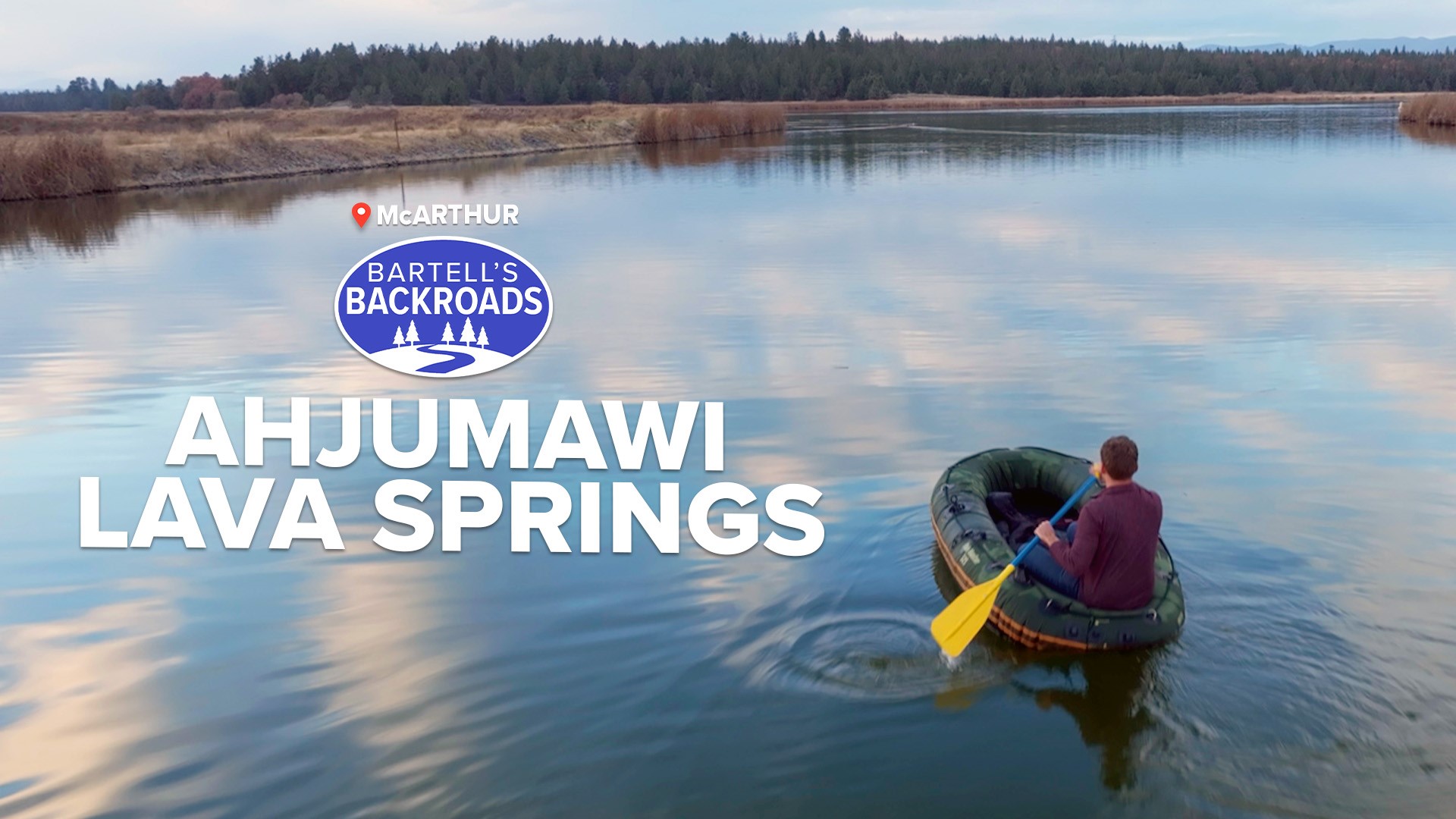MCARTHUR, Calif. — Of the more than 280 state parks in California, Ahjumawi Lava Springs State Park in Shasta County is the only one that requires a boat to gain access.
Many who visit choose to kayak or canoe, starting from a small boat ramp just outside the little town of McArthur. A narrow channel surrounded by grass and tule plants will eventually lead you to open water.
Depending on what part of the park you want to see, you may have to paddle more than two miles. Ahjumawi Lava Springs State Park is the site of one of the nation’s largest underwater spring systems. The crystal clear water literally boils out of the ground and feeds a spiderweb of lakes, rivers and creeks to saturate Shasta County’s Fall River Valley.
It's important to be respectful when your boat reaches the park. For thousands of years this area was, and still is, the ancestral home of the Ajumawi people — a band of the Pit River Tribe.
“As we see it, we are the keepers of the land for the creator. The Ajumawi are the water people, or some say the word translates to 'where the waters come together,'” said Virginia Mike, a cultural liaison with the Ajumawi Tribe.
Mike teaches younger tribe members about their culture and the importance of the water that helps isolate and protect their ancestral land.
“The importance of water to the Ajumawi people is life. Water is life. Without water there is no life,” said Mike.
As she walks along the lava rock trails, Mike likes to point out the ancient fish traps that were built by Ajumawi fishermen. They look like piles of rocks, but those rocks are placed in such a way that trout and sucker fish could be pushed or herded from deep water to shallow water pools.
“The opening is further out and we herd the fish in. Once we herd them into one pond, we close it off then herd them again into shallower areas where they are easier to catch,” she said.
To help protect the fish traps from vandalism, California State Parks and the tribe don’t share their locations, but Mike showed ABC10 what they looked like so boaters and visitors can avoid them.
“We are trying to protect them because people try to drag their boats up into these traps to get out, and we are trying to explain to them they are ruining these fish traps and they have been here for years,” said Mike.
TAKE A TRIP ON BARTELL'S BACKROADS:
► See an interactive map of everywhere John has visited on the backroads
► Watch all of the Backroads videos
► Follow John on Facebook
There is a long history of non-native people disturbing Ajumawi and Pit River tribal territory. With the help of the U.S. military, early settlers in the 1860s forced the Ajumawi into reservations so their land could be farmed and logged.
“We were massacred for our land. They put bounties on our heads, $100 a head,” said Mike.
By the 20th century, much of the remaining Ajumawi land was acquired by Pacific Gas and Electric Company to build hydro-electric dams which blocked salmon from spawning up to Ajumawi water. In an effort to right a wrong, the government agreed to pay reparations to the Ajumawi and Pit River tribes who had land taken from them.
In the 1970s, conflict arose after tribes learned they would only be paid 47 cents an acre, a pitifully low price for land which was based off the going rate for property back in the 1850s.
In 1975, California State Parks acquired 6,000 acres of private land and former Ajumawi territory and turned it into the current day Ahjumawi Lava Springs State Park.
“In our past, it was a bad type of genocide and deal that happened to my people. I can’t change it, the only thing I can do is move forward to try and make things better for my grandkids that I brought out here,” said Mike.
Mike hopes one day the land will be returned to her people but for now she uses the park to teach the tribe's culture. If you visit, you will find campsites and barbeques scattered across the park, but you also will see remains of sacred land once inhabited by the Water People, the Ajumawi tribe.
“It’s a traditional place for my people. It's our culture. We are not cattle herders; we are fish herders,” said Mike.
MORE CULTURAL TRADITIONS ON THE BACKROADS: Massacres and forced removals nearly destroyed Yurok culture. A small village in a state park is a step toward restoring some of what was almost lost.



















